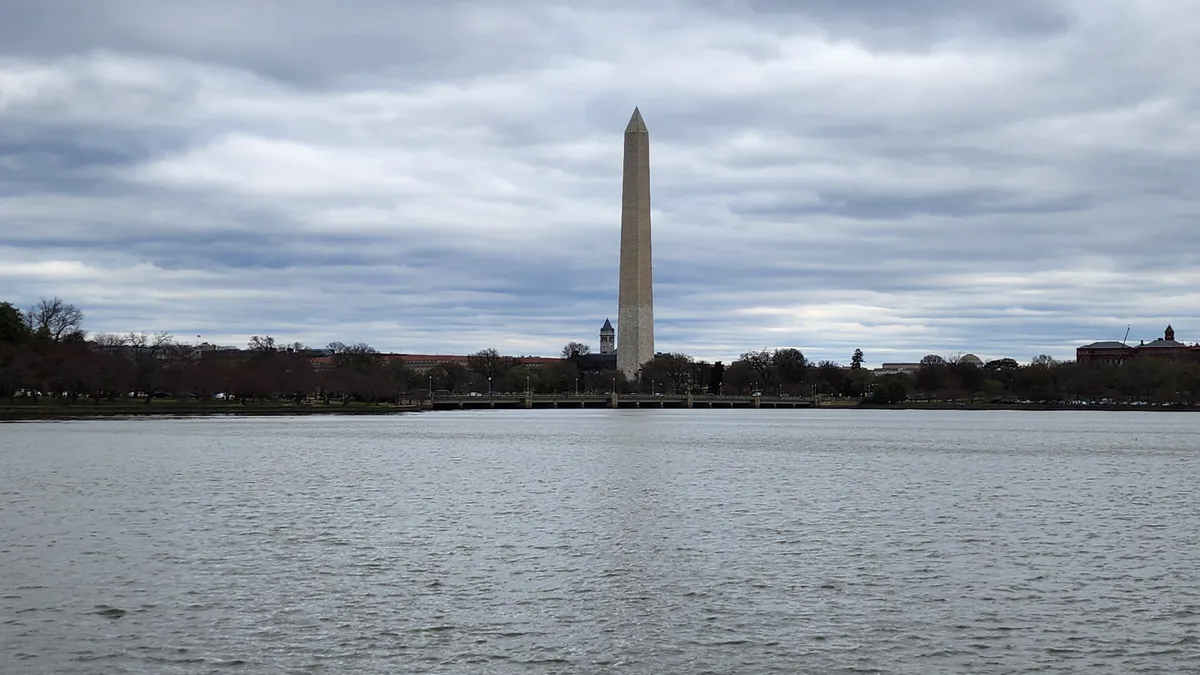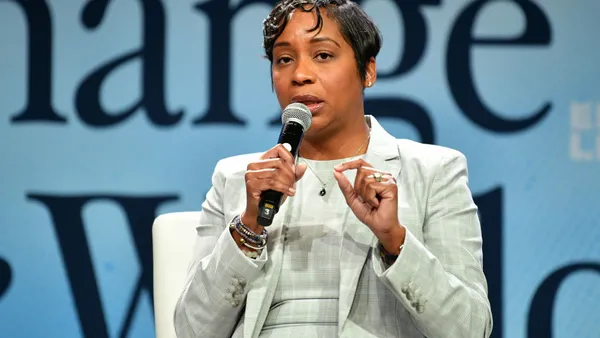Dive Brief:
- The city council of Washington, D.C., passed a restaurant bill Tuesday with several provisions, including one that shields restaurants that charge service fees of 20% or less from some litigation under certain conditions. The bill passed by a vote of 12 to 1.
- The service fee amendment clarifies that such fees “shall not constitute an unfair or deceptive trade practice,” if they are less than 20%, are disclosed clearly to consumers — including verbally, on the restaurant’s website and menus — and so long as the purpose of the fees are disclosed.
- Passage of this amendment comes as many in the restaurant industry predict a proliferation of service fees. In 2022, the District sued Grubhub over its fee structure, signaling interest in regulating opaque and deceptive fees.
Dive Insight:
Service charges imposed by D.C. restaurants have become something of a political flashpoint since the implementation of Initiative 82 last year, which eliminated the tip credit and raised hourly wages for restaurant workers. The Employment Policies Institute, which has publicly advocated for the preservation of the tip credit, found 70% of regional restaurants would consider adding service fees by 2027.
Operators lean on such fees to absorb rising labor costs. Omar Popal, founder of Popal Group in D.C., said in a recent Restaurant Dive interview that his restaurants use service fees to help cover wages, health insurance and worker benefits.
Before the bill becomes law, the mayor must approve it and the legislation must be submitted to Congress for a review period in which the federal legislature can overrule measures passed the District’s government.
In the months leading up to the council vote, a coalition of left wing groups and worker organizations opposed to service charges, called Fair Price Fair Wage, launched a social media campaign in Washington to document service fees at restaurants and grade them according to their level of transparency. The group focused on highlighting individual restaurants rather than conducting a citywide survey, so its findings — which identified restaurants with unclear fee disclosures, clear fee disclosures or no fees at all — are unlikely to reflect the proportion of local restaurants implementing fees.
Popal said some D.C. eateries have added service fees ranging between 4% and 23%.
While there was a flurry of reporting that the end of the tip credit damaged the D.C. restaurant labor market earlier this year, such allegations were based on a single month of seasonally unadjusted employment data for a city where full-service restaurant employment generally dips in the fall and winter. Subsequent months have seen tipped employment recover in D.C., with the full-service restaurant workforce up by about 700 workers, or roughly 2.4%, larger in December 2023 than in the year-ago period.














